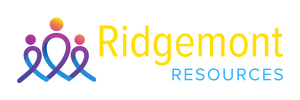|
Are you the person that struggles to make professional connections? Maybe you feel that you missed out on opportunities that would have been ideal for your career growth? While you may not believe it, networking is a skill that you can develop and leverage to maximize your career potential. Professional growth isn’t about what or who you know - it’s who knows you and what they say about you that is truly important. Making introductions happen can be a tall order or the introverts among us. You have to step outside of your comfort zone to find the magic. By developing and nurturing professional relationships you can create a supportive community that encourage you, guides you, helps you and reveals opportunities that you never knew existed. Networking is more than building a list of contacts. It allows you to create long-term relationships that help both of you grow professionally. Think about it, the smartest or hardest working people are not necessarily the ones who advance, right? Why, because people tend to refer and hire the people that they are most comfortable with. Skills matter. Relationships matter more. First let's eliminate the myth that extroverts are better networkers compared to introverts. It's simple not true. Extroverts may capture more contacts faster, but even the most shy and introverted people can learn to develop connections effectively. Networking is a skill that anyone can develop. Believe it or not, introverts may be more effective at building connections. According to author Jamie Flinchbaugh, "Networking isn't about collecting names, it is about connection. Introverts don't bother with meaningless connections, only meaningful ones." A recent study from Lehigh University backed that assertion up when it found that regardless of age, gender, career stage, or level of extroversion or introversion, networking skills can be developed to accelerate your career. Here’s how:
Anyone can become a successful networker. Lean into these tips to level-up your networking skills, build relationships and grow your pharmacy career to its full potential.
5/23/2024
Do You Dread Going to Work?Are you burned out? What are the signs? And what’s the best way to prevent it? To find out, ask yourself:
In my experience, the best way to prevent pharmacy burnout is to be proactive. Speak up. It’s very likely some of your coworkers also have similar feelings, and talking to someone who understands what you’re going through can help. Talk to your manager, too. If they don’t know how you feel, nothing will ever change. Perhaps the best way to prevent burnout is to choose the type of practice and employer wisely. The last thing you want to do is feel stuck in a pharmacy setting that doesn’t feel rewarding or challenging, or working for an employer who doesn’t treat you well. Sometime a change is what you need to reinvigorate your career. Reach out to me at [email protected]. I’d love to hear about what you are going through and hopefully help you find opportunities that could be a better fit. 📌 Want to level up your career performance? Follow @Jana Rugg for top tips to help pharmacy owners, managers & directors, staff& clinical pharmacists, Pharmacy techs and intake specialists' level up!
5/2/2024
Leadership Green FlagsPeople appreciate the positive vibes great leaders bring to the workplace. Listening to my clients share their experiences has given me greater appreciation for how the 'little things' make a huge impact. Here are a few of the 'Green Flags' that great leaders of all levels share:
What characteristics have you found most endearing in leaders you’ve worked with? Share your comments below. Be sure to tag those that have made a positive difference for you and make their day️!
📌 Want to level up your career performance? Follow @Jana Rugg for top tips to help pharmacy owners, managers & directors, staff& clinical pharmacists, Pharmacy techs and intake specialists' level up! Over my 20 years as a Pharmacist recruiter I noticed that my happiest clients all put 6 key habits to work finding the perfect position. You can too. Check out these 6 key habits my happiest clients have used to find the perfect position.
1. Expand your network and work it.Personal referrals are hands-down the most effective way to find a fantastic job. Hiring managers are always more comfortable when a candidate is referred by someone in their network. Engage your colleagues, coworkers, friends and family. Ask them about their experiences. Update your Linked In profile and make new connections. It's a small world, you will be surprised at the connections you will find with little effort. PRO TIP: Keep networking through your interview process. Ask around to see if anyone knows people who work at a particular company that you could talk to. You can gain amazing insights. 2. Seek out references and keep communication openIt may come as a surprise, but people will agree to be a reference and not provide a favorable recommendation on your behalf. Always make sure to verify the reference is willing to provide a favorable letter of recommendation. In addition, it is important that your references have a reasonable relationship with you and the lines of communication remain open. From my experience, your future employer will do one or more of the following: call your references to get a verbal referral, email a questionnaire for the references to fill out, or request a formal letter of reference. As you go through your search process, it will be important that you respect the time of your references by keeping them aware of what may be requested of them. PRO TIP: Keep your references in the loop by updating them periodically about who might reach out to them. Be sure to avoid sending too many emails their way. 3. Write down your five and ten-year goalsKnowing what you want is the key to finding happiness. While you may think you understand what your goals are, you may be surprised at what this exercise reveals. Goals will guide your job search. I recommend adding both professional and personal goals so that you know what work-life balance really means to you. PRO TIP: After writing your goals, discuss them with a trusted mentor. You'll gain insight into what you really want - and don't want - in a position. 4. Be patient and stay organizedEveryone is busy and you may not hear back for weeks or months. Hiring decisions take time and there are a lot of factors beyond your control or the control of the pharmacy administrators looking for new employees. I recommend for you to create a document or folder for every job you've applied to that contains all the other pertinent information and a list of exactly what you've submitted so that you will not have to keep looking it up. PRO TIP: Check your junk mail daily and contact human resources if you think something is amiss. 5. Take advantage of specialty job boardsThere are specialty job boards like RidgemontResources.com focused solely on PharmD so that you don't waste your time sifting through jobs you'll never want. Next, go to the institutional websites of the companies you want to work for and try searching their “jobs” section - sometimes you will find jobs not yet posted elsewhere. PRO TIP: Be on top of new openings and apply fast! Often job postings have a cap on the number of applications. 6. Be proactive and go after what you want.Usually job applications will first go to human resources, get screened and potentially stuck. Write a short, polite well-constructed email directly to the hiring manager or director. Avoid selling yourself. Express your intentions and thank them for the opportunity. PRO TIP: Less is more. Be brief and express gratitude for the opportunity. For many the first job out of school may not seem like a “dream job” but every job has unique potential. My happiest clients all seem to know the same thing, "the grass may be greener on the other side of the fence, but you know what, the grass is also greener where you water it.” I hope these points helped you out, good luck! Mastering these 15 core interview questions will give you the edge over other potential candidates. Confident responses when navigating your job interview can be as challenging as getting through pharmacy school. Interviews can be high stress, anxiety-driving situations. Whether you’re fresh out of residency or a seasoned veteran, preparation always pays off. Interviewers will probe your knowledge, patient-care acumen, and decision-making skills. Likely you already know the right answers. But will you be able deliver clear, concise answers under pressure? Here are 15 essential questions that you’re likely to face during your next clinical pharmacist job interview and some expert tips on how to respond. 1. Can you describe your experience as a clinical pharmacist and how it has prepared you for this role? Expert Tip: This is your elevator pitch. Tailor your answer to highlight experiences relevant to the job description, such as managing a specific patient population or a successful project. 2. How Do You Stay Current With New Medications and Treatment Protocols? Expert Tip: Discuss your strategies, whether it's subscribing to journals, attending conferences, or participating in webinars. 3. How Do You Prioritize Adverse Drug Event (ADE) Reports and Take Action?
Expert Tip: Explain your approach, which should include severity assessment and direct patient communication if necessary. |
|
Ridgemont Resources is committed to facilitating equal employment opportunities to all.
We do not discriminate on the basis of race, color, creed, age, sex, national origin, religion, or disability.
We do not discriminate on the basis of race, color, creed, age, sex, national origin, religion, or disability.
Website by Grey Partners







 RSS Feed
RSS Feed






